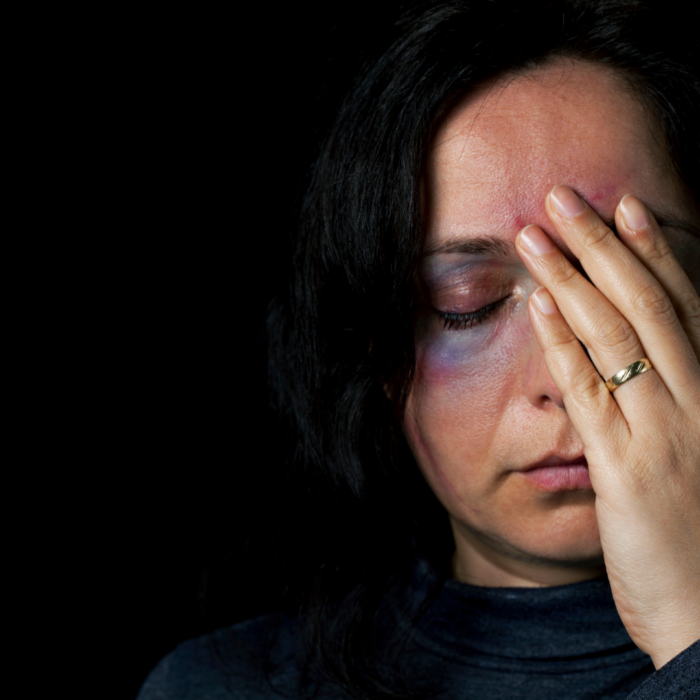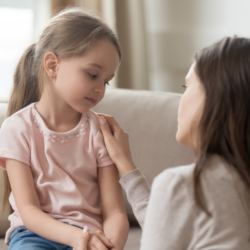Domestic and Family Violence Prevention Month
May is Domestic and Family Violence Prevention Month. It’s a time where communities are encouraged to raise awareness of domestic and family violence, including coercive control.
Anglicare Southern Queensland takes domestic and family violence very seriously. For years, we have been advocating for victims and their families and supporting those who have been and are currently impacted by this issue.
Some statistics on domestic and family violence (DFV)
Statistics emerge each year, highlighting the impact that domestic and family violence has on communities, nationally. Recent data shows that women are “overwhelmingly the victims of violence in intimate relationships…” and continue to be more likely to experience serious harm because of DFV in Australia. In fact, they’re around six times more likely to be hospitalised and four times more likely to be murdered by an intimate partner in a DFV relationship.
According to data from the Australian Bureau of Statistics and an NCAS report into DFV, since the age of 15, one in six women have experienced physical and/or sexual violence from a partner and one in five women have experience sexual violence from a partner.
In comparison, one in sixteen men have experienced physical and/or sexual violence from a partner and as for sexual violence, one in twenty one men have experienced this form of abuse.
Emotional abuse is a more prevalent form of exploitation. It’s believed that one in four women and one in six men have experienced emotional abuse from a partner.
Below are some other notable statistics relating to victims of DFV in Australia.
- One woman is killed, on average, each week by a current or former partner;
- 39 per cent of people needing help from a specialist homelessness shelter in 2021 to 2022 experienced DFV;
- Indigenous people are 32 times more likely to be hospitalised from domestic abuse; and
- Male victims of DFV are often victims of male perpetrators.
Facts about domestic violence
There are many misconceptions surrounding domestic and family violence. Unfortunately, these misconceptions can lead to a culture of victim blaming and justification of perpetration towards female victims.
One of the biggest misunderstandings is that victims provoke their perpetrator. This is a harmful and inaccurate representation of victims. In fact, studies have shown that victims tend to do everything in their power to appease their perpetrator, in hopes that they will not be attacked.
People also believe that the female victims of DFV would just leave their abuser, if they were in any real danger. Unfortunately, some women choose to stay because they are at a higher risk of experiencing extreme danger (including death) if they leave their abuser.
There are many forms of DFV. It doesn’t always manifest itself as physical abuse. In fact, DFV includes acts of sexual, emotional, verbal, economic, neglect, and elder abuse. It can also include physical, sexual, and emotional abuse towards children.
Coercive control is another form of domestic abuse which is becoming more understood by communities.

Many female victims of DFV choose to stay with their partner because their at risk of experiencing extreme danger if they leave
Facts about coercive control
The NCAS Summary Report defines coercive control as “a pattern of behaviours used to manipulate, intimidate, isolate and control a partner and create an uneven power dynamic in the relationship.”
Abusers may use coercive control to isolate their partner from friends and family. They may also monitor the physical movements and online activities of their partner.
Coercive control can include tactics to restrict the freedoms and independence of victims, including limiting their financial capabilities. It may also manifest itself as jealous and possessive behaviours. An abuser may also use coercive control to threaten or intimidate their partner.
What is Anglicare Southern Queensland doing about the issue?
Our organisation provides an extensive range of counselling and support programs to encourage perpetrators to change their behaviours. We also provide support to victims and their families.
Living Without Violence
Our Living Without Violence program is designed for male perpetrators of DFV. In this service, we offer the 18-week Disrupting Family Violence group program (HMA, 2018) (or we can provide individual counselling if group is not suitable) to men who have used violence and abuse against their partners or children.
The Living Without Violence program assists men to cease their abusive and violent behaviours. The goal is to help them establish safety, respect, and equal partnership in their relationships and move closer to family wellbeing.
If you would like to learn more about our Living Without Violence program, please visit our Better Relationships website, here.
Specialised Family Violence Service
Anglicare Southern Queensland also offers a service that is designed to support children living in abusive households and their families. The Specialised Family Violence Service is designed with a child-focussed framework.

Anglicare’s Specialised Family Violence Service is designed using a child-focused framework
In this service, we offer children’s counselling, family counselling and individual counselling to victims/survivors of DFV. We also provide education to those who’ve abused or been violent towards their family members.
Ultimately, our Specialised Family Violence Service aims to provide individualised support to victims and their children, who’ve experienced or witnessed domestic abuse and violence.
For more information about our Specialised Family Violence Service, click here.
Other support
As mentioned, 39 per cent of people who required support from a specialised homeless service in 2021 and 2022 had experienced DFV.
Each year, our organisation helps an alarming number of women who’ve fled violent and abusive relationships. We provide them safety and accommodation as well as support to secure longer term accommodation, skills training, and parenting support (if they are fleeing their offender with children).
Our counsellors and support staff will work with individuals to best identify their needs. Ultimately, we work with women who become homeless (whether it’s due to fleeing an abusive relationship or not) to rebuild their self-worth and make sustainable choices for themselves and their families.
To learn more about our counselling and wellbeing programs, head over to the Mental Wellbeing page on our website.
Alternatively, click on the links to learn more from our videos explaining DFV and Coercive Control.









